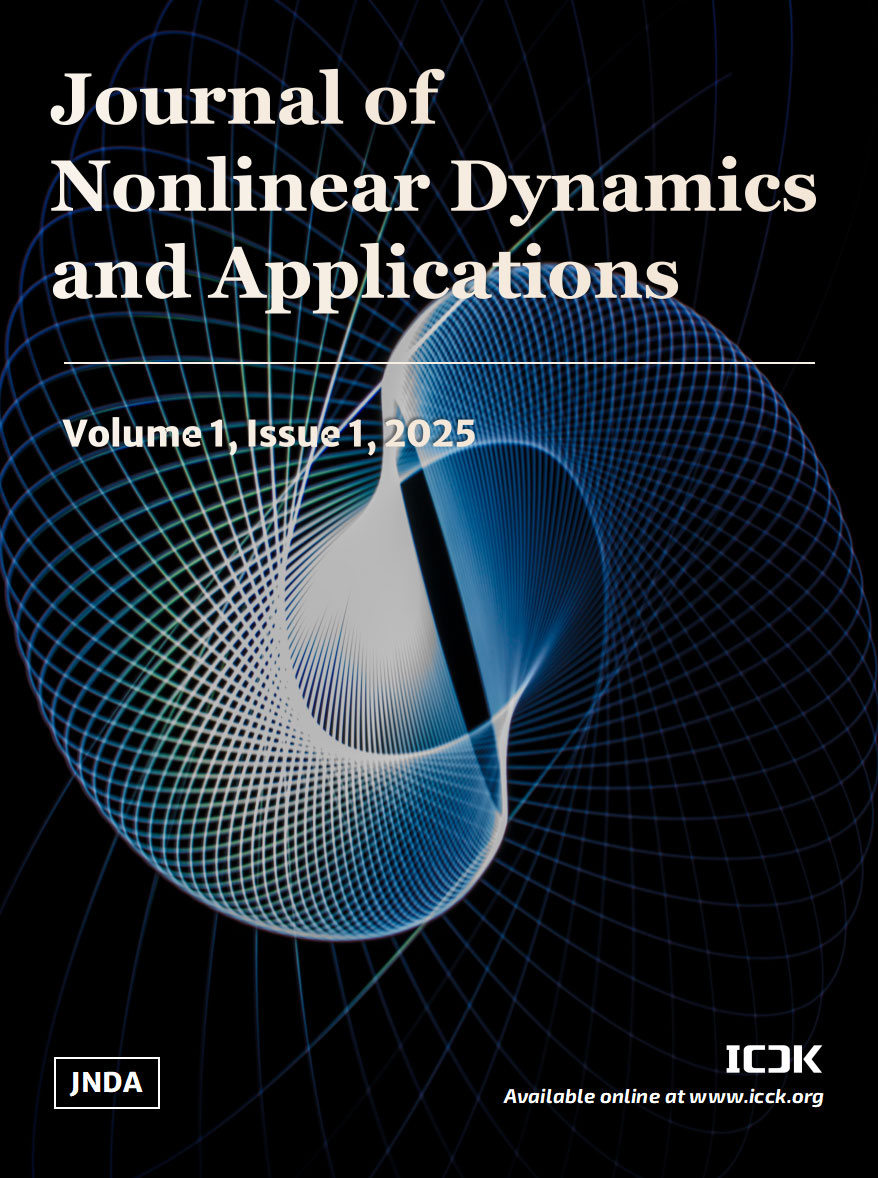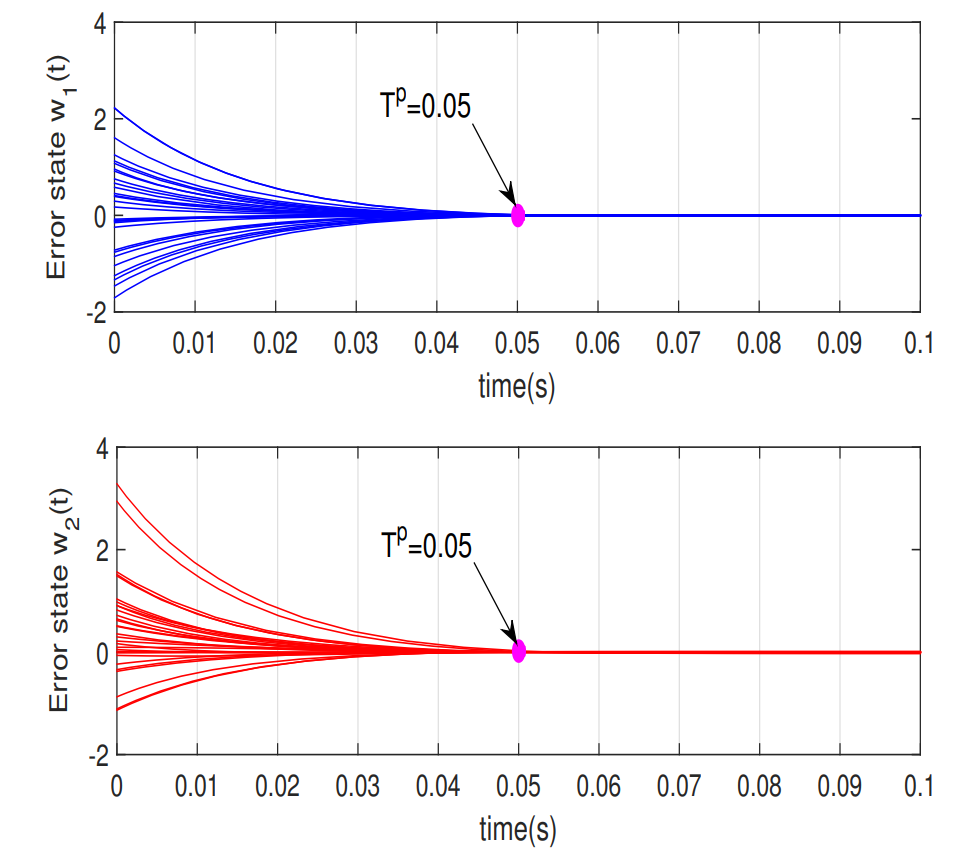Abstract
This paper investigates a class of neural networks (NNs) with time-varying delays. At first, based on the general exponential function and by using inequality techniques, we establish novel lemmas addressing fixed/preassigned-time synchronization for such NNs. Then, by employing these derived lemmas and designing two effective feedback controllers, we systematically study the fixed-time synchronization (FTS) and preassigned-time synchronization (PRTS) problems of delayed NNs. In addition, the settling-time estimation in our fixed-time stability lemma expresses superior accuracy compared to existing results in previous related works, which can all be viewed as special cases of this paper. Finally, numerical simulations demonstrate the validity and practicality of the theoretical findings.
Keywords
neural networks (NNs)
fixed-time synchronization (FTS)
preassigned-time synchronization (PRTS)
feedback control
time-varying delays
Data Availability Statement
Data will be made available on request.
Funding
This work was supported by the National Science Foundation of China under Grant 61976228 and Grant 62476292, and the Fundamental Research Funds for Central University of South-Central Minzu University under Grant CZQ24020.
Conflicts of Interest
The authors declare no conflicts of interest.
Ethical Approval and Consent to Participate
Not applicable.
Cite This Article
APA Style
Zhang, G., & Rakkiyappan, R. (2025). New Exponential Function Based Fixed/Preassigned-Time Synchronization for A Kind of Neural Networks with Time-Varying Delays. Journal of Nonlinear Dynamics and Applications, 1(1), 26–35. https://doi.org/10.62762/JNDA.2025.937806
Publisher's Note
ICCK stays neutral with regard to jurisdictional claims in published maps and institutional affiliations.
Rights and Permissions
Institute of Central Computation and Knowledge (ICCK) or its licensor (e.g. a society or other partner) holds exclusive rights to this article under a publishing agreement with the author(s) or other rightsholder(s); author self-archiving of the accepted manuscript version of this article is solely governed by the terms of such publishing agreement and applicable law.


 Submit Manuscript
Edit a Special Issue
Submit Manuscript
Edit a Special Issue

